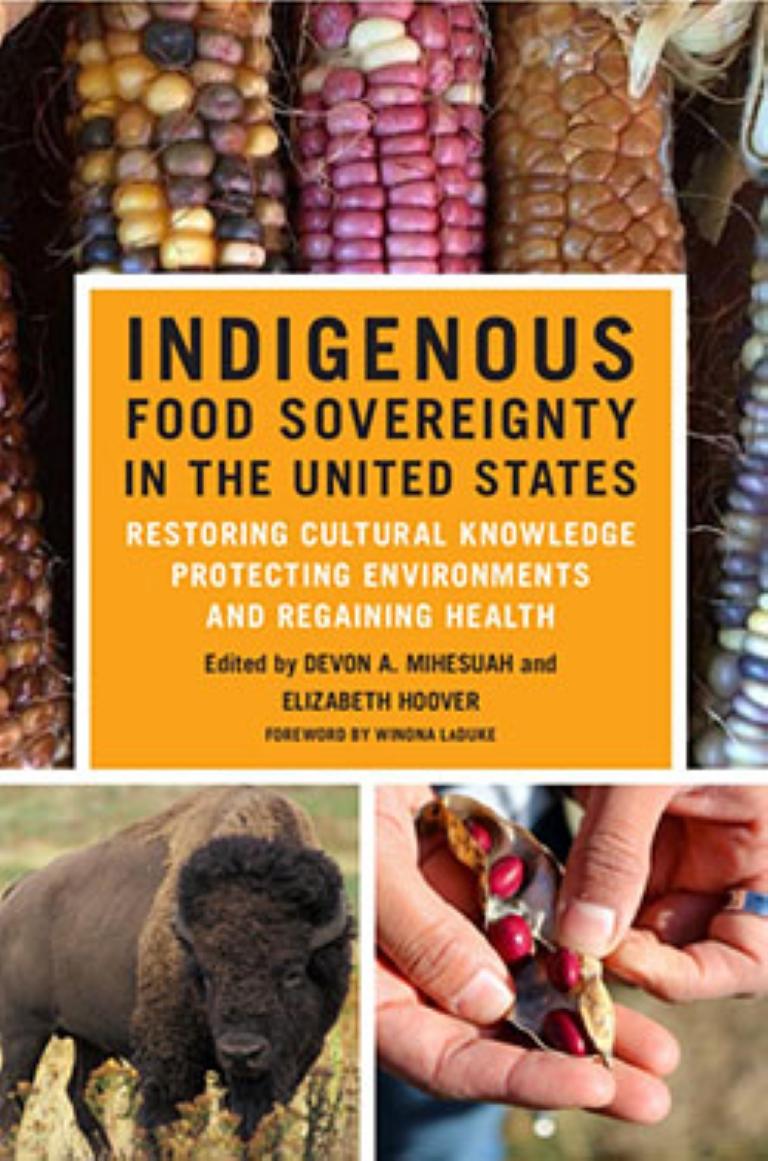Indigenous Food Sovereignty in the United States
Indigenous Food Sovereignty in the United States: Restoring Cultural Knowledge, Protecting Environments, and Regaining Health Ed. with Elizabeth Hoover
Daniel F. Austin Award presented by the Society for Economic Botany
Gourmand International's World Cookbook Awards: Best in the World University Press Book
Gourmand International's World Cookbook Awards: U.S. Best Book Award for Arctic
Gourmand International's World Cookbook Awards: U.S. Best Heritage Book
High Country News's "This Season’s Best Reads," November 11, 2019
Literary Hub's Best of University Press Books, 2019
EcoWatch's Best Environmental Books of August, 2019
"Return and recovery is very much at the heart of this volume. Indigenous food sovereignty argues for rooted and collective continuance. More than about development and conservation—or resilience even—it is about sacredness and intimacy, health and sovereignty, food and identity; and it comes from a place deep within."—Virginia D. Nazarea, author of Heirloom Seeds and Their Keepers: Marginality and Memory in the Conservation of Biological Diversity
"The collective wisdom of Turtle Island's indigenous peoples offered in Indigenous Food Sovereignty charts a course for decolonization and liberation—and a vision for a better food system and a just society."—Eric Holt-Giménez, author of A Foodie's Guide to Capitalism
"This thoughtfully curated collection of essays gives food scholars a vital window on the gorgeous and fierce resilience of indigenous food systems and the activists who work to preserve them against steep odds. It will shape the way we think about indigenous food systems for years to come."—Amy Trauger, author of We Want to Live: Making Political Space for Food Sovereignty.
"Indigenous Food Sovereignty in the United States is a detailed text that effectively conveys hope for the future of Indigenous communities while criticizing colonial practices—emphasizing that there are serious repercussions for abandoning tradition,and there is beneficial power in reclaiming Indigenous authority over food and environmental practices." –Katie Wolf, Transmotion
"Gathering an impressive and wide-ranging list of contributors, and drawing on up-to-date and sophisticated scholarship in critical Indigenous studies and other interdisciplinary fields, Devon A. Mihesuah and Elizabeth Hoover demonstrate how food sovereignty unites Native patterns of kinship, livelihood, health, and cultural and ecological knowledge in ways that provide powerful alternatives to past models of political sovereignty imagined and compelled by the settler colonial state. Indigenous Food Sovereignty offers a guidebook to the significance of the rapid revitalization of Indigenous food movements in North America and beyond. Anyone interested in keeping pace with these transformations will benefit from reading this book." –Michael Wise, Western Historical Quarterly
"This is a foundational book that we need to recognize and award." —Economic Botany
